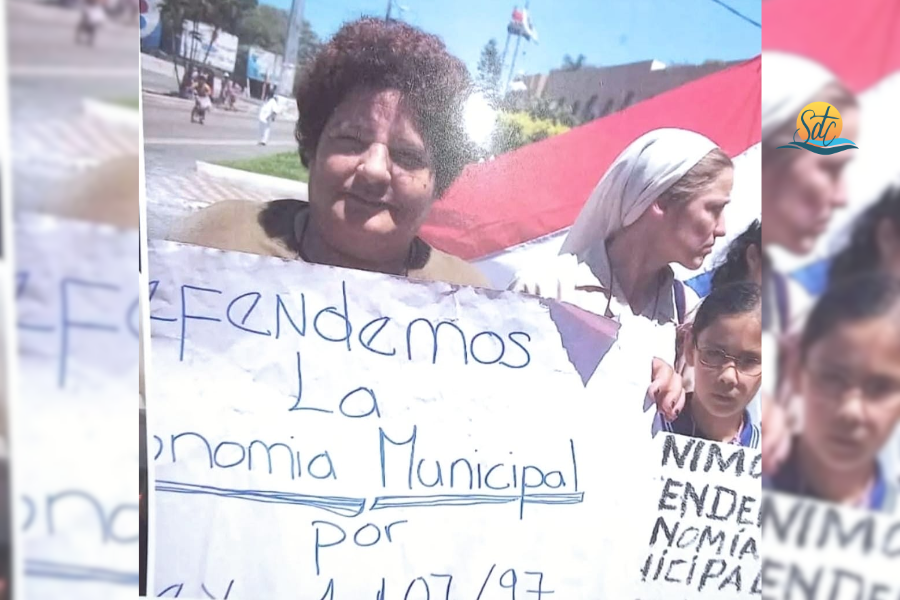On the phone of L’Osservatore Romano, sister Elvira Tutolo: torture, ill-treatment, illegal and arbitrary detention are the order of the day in the overcrowded prisons of the Central African Republic. The denunciation, contained in a United Nations report, comes just a few days after Unicef reported that more than ten years of protracted conflict and instability “put every single child” in the Central African Republic at risk.
Two separate international reports that not only return to the scourge of the serious socio-political situation in the country, but also highlight another painful reality for children. Because children are also directly affected by the contents of the UN report on the state of prisons.
“Although the Central African Republic has signed an international convention not to put children in prison, there remains the problem of the absence of a juvenile prison in the country“, Sister Elvira Tutolo, a nun of the Sisters of Saint Jeanne Antida Thouret originally from Termoli, explains to the telephone of “L’Osservatore Romano”: “So the children who commit small or big crimes, which is not unusual because of the conditions of extreme poverty, are thrown into overcrowded cells together with adults. Without rights”. “We entered into this problem in a very direct way,” Sister Elvira recalls.
In Berberati we were just a few steps away from the prison and once we heard some screams: we were shocked to discover that they were those of a boy only 12 years old’.
After about 25 years of mission in Berberati, on the border with Cameroon, the Italian nun now lives in the capital Bangui where she has ‘more voice’ and directs the NGO Kizito. At the height of the civil war, the rehabilitation of child soldiers was at the centre of her missionary activity, while today the focus is increasingly on the social reintegration of imprisoned minors.
Tens of thousands of people in Central Africa, including children, are detained in inhuman conditions. Starting with the ‘notorious’ Ngaragba prison in Bangui. Prison overcrowding leads to widespread malnutrition, proliferates disease and deprives prisoners of a real chance of redemption. The UN report urges the Central African authorities to take urgent and concrete measures to remedy these ‘human rights violations’; while denouncing that, at the end of 2023, 1,749 detainees were still awaiting trial, some for almost six years, in flagrant violation of the right to a fair trial.
There could be room for change with the prison reform in the pipeline. “But there is a serious problem related to funding,” explains Sister Elvira, bringing her direct testimony. “As the NGO Kisito, together with Unicef, we are inside an international commission to resolve the issue of the absence of a juvenile prison,” says the nun. The Central African authorities themselves entrusted her with this task, in the wake of what she did in Berberati where she saved about 150 minors between those recruited by the Séléka militias and those who ended up in prison. ‘Boys without a family’ (Kizito in the local language) who are taken off the street, out of the forest and from a future of crime to be reintegrated on positive paths thanks to a ‘new’ life in the community where they engage in productive activities, from community gardens to the carpentry school. “About three months ago, the government granted us free land on the outskirts of Bangui to replicate what was done in Berberati,” says Sister Elvira, explaining that she has regular meetings with the Ministry of Justice, diplomats and other NGOs in the area: “But we lack the money to build this centre.
Since the civil war broke out at the end of 2012, the Central African Republic has never fully recovered. In October 2021, the president, Faustin Archange Touadéra, had declared a unilateral ceasefire with the aim of facilitating national dialogue, but a large part of the country – rich in diamonds, uranium and gold – continues to be the target of attacks by the various militias.
Amidst many difficulties, the work of the NGO Kizito continues; while the appeal of Pope Francis still resounds, who, opening the Holy Door of the Jubilee of Mercy in Bangui in 2015, urged Central Africans to overcome ‘distrust’, ‘violence’ and the instinct of ‘destruction’ to be artisans ‘of human and spiritual renewal‘.
VALERIO PALOMBARO, L’Osservatore Romano, 27 July 2024







